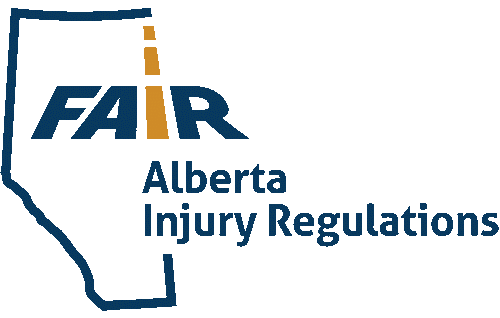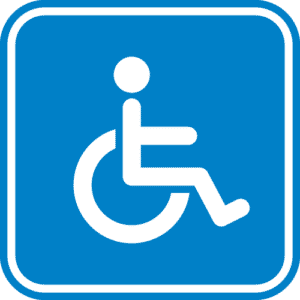The devastating experience of losing a loved one as a result of an accident takes an enormous emotional toll. At such a time, sorting out what steps to take next may seem like an overwhelming task. You may be entitled to compensation if you file a wrongful death claim.
How will you know?
Nothing can make up for your loss. You should know, however, that Alberta has special rules that allow family members to claim for wrongful death when a loved one has been killed because of another person’s negligence.

What is a wrongful death claim?
In Alberta, wrongful death claims are governed by the Fatal Accidents Act. It specifies that a wrongful death claim is an action for damages when a person’s death has been caused by “a wrongful act, neglect or default that would, if death had not ensued, have entitled the injured party to maintain an action and recover damages…”
The legislation outlines
- who is entitled to make a wrongful death claim
- the specific time limits applicable to a wrongful death claim, and
- what damages are recoverable in a wrongful death action.
It also stipulates the specific amounts to be awarded for certain types of claims.
Who is entitled to make a wrongful death claim?
Under the Fatal Accidents Act, a wrongful death claim can be brought by the executor or administrator of the estate for the individual who died. The claim is for the benefit of the deceased person’s family members. Eligible family members may include
- the surviving spouse or adult interdependent partner,
- parents (including stepparents and grandparents),
- children (including stepchildren and grandchildren), and
- siblings of the deceased.
What happens if there is no executor or administrator for the deceased’s estate or if the executor or administrator does not bring an action within one year after the death of the injured person? In such cases, the action may be brought by any of the eligible family members – those who would have benefited from the action if it had been started by the executor or administrator.
Please note:
- For any wrongful death, only one action should be started, which can create a challenging situation if eligible family members are in conflict in each other.
- Regardless of who starts the wrongful death claim, the action must be brought within two years of the death of the injured person.
What damages are recoverable in a wrongful death action?
The Fatal Accidents Act stipulates four basic types of losses that can be claimed for wrongful death.
In a wrongful death action, the court may award eligible family members damages “appropriate to the injury resulting from the death”. The court may also award damages for the pain and suffering experienced by the deceased person between the injury and death.
2. Dependency Claims
If family members were dependent on the deceased person, they may claim damages for loss of dependency, including:
- loss of financial support,
- loss of household services and childcare, and
- loss of inheritance.
The general basis for a damage award is to put the claimant (or the deceased’s family members) in the position they would have been in had the wrongful act not occurred. In other words, the deceased’s dependents are entitled to enjoy the standard of living they would have experienced had the deceased lived.
Establishing a dependency claim requires the use of experts to value those losses. Experts are necessary to conduct a detailed examination of the deceased person’s education, work history, career path, and income. They also examine statistical averages for people with similar education and experience to make projections about future damages.
Dependency claims are most often thought of in terms of surviving spouses/partners and children; however, parents may be able to make a loss of dependency claim related to the death of their child. These claims are sometimes based on the concept of filial piety – that is, the idea that in some cultures and families, children show respect to their parents by financially providing for them. Proper evidence must be presented that establishes a deceased child would have made a financial contribution to their parents but for their death.
Alberta’s Fatal Accidents Act mandates that a court is not to take into account any insurance proceeds arising from the deceased person’s death when it assesses damages for a wrongful death claim. However, as with any personal injury claim, the damages awarded under a wrongful death action may be reduced if the court finds that the deceased person was partially at fault for their own death (a finding of contributory negligence). Personal injury lawyers who routinely handle these types of claims are adept at tackling liability issues that may be both complicated and distressing.
3. Reimbursement of Expenses
Family members entitled to make a wrongful death claim may also be entitled to reimbursement for their reasonable expenses and fees including:
- expenses for the care and well-being of the deceased person between the time of injury and death,
- travel and accommodation expenses incurred in visiting the deceased between the time of injury and death,
- funeral and burial or cremation expenses, and
- fees paid for grief counselling for eligible family members.
These expenses need to be established with proper documentation, such as receipts.
4. Damages for bereavement (grief and loss of guidance, care, and companionship)
The Fatal Accidents Act states specific amounts payable for grief and the loss of the guidance, care, and companionship of the deceased person for certain family members as follows:
- $82,000 to the spouse or adult interdependent partner of the deceased (the couple must not have been separated at the time of the deceased’s death),
- $82,000 to the parent or parents of the deceased, divided equally if the action is brought for the benefit of both parents, and
- $49,000 to each child (not a stepchild or grandchild) of the deceased person.
Because the amounts for grief are set by the legislation, eligible family members do not need to prove the extent of their grief or their closeness to the deceased to receive those damages. Note, however, that these damages are not available to a spouse or adult interdependent partner who was living separate and apart from the deceased person at the time of his/her death.
Conclusion
Filing a wrongful death claim should not be an additional burden for you to carry. When making a claim for wrongful death, having the guidance of an experienced personal injury lawyer can be crucial. The injury lawyer will help you meet deadlines, navigate the legal process, and understand the issues applicable to your unique circumstances. The injury lawyer will help you obtain fair compensation for the loss of your loved one.
If you have lost a loved one to a wrongful death, I hope you will consider scheduling a free consultation with our team. You can call (780) 760-4878 (HURT) or contact me personally, Joseph A. Nagy. We can discuss the issues related to your claim, and I will explain how I can help you. You will be under no obligation to hire me as your lawyer.









